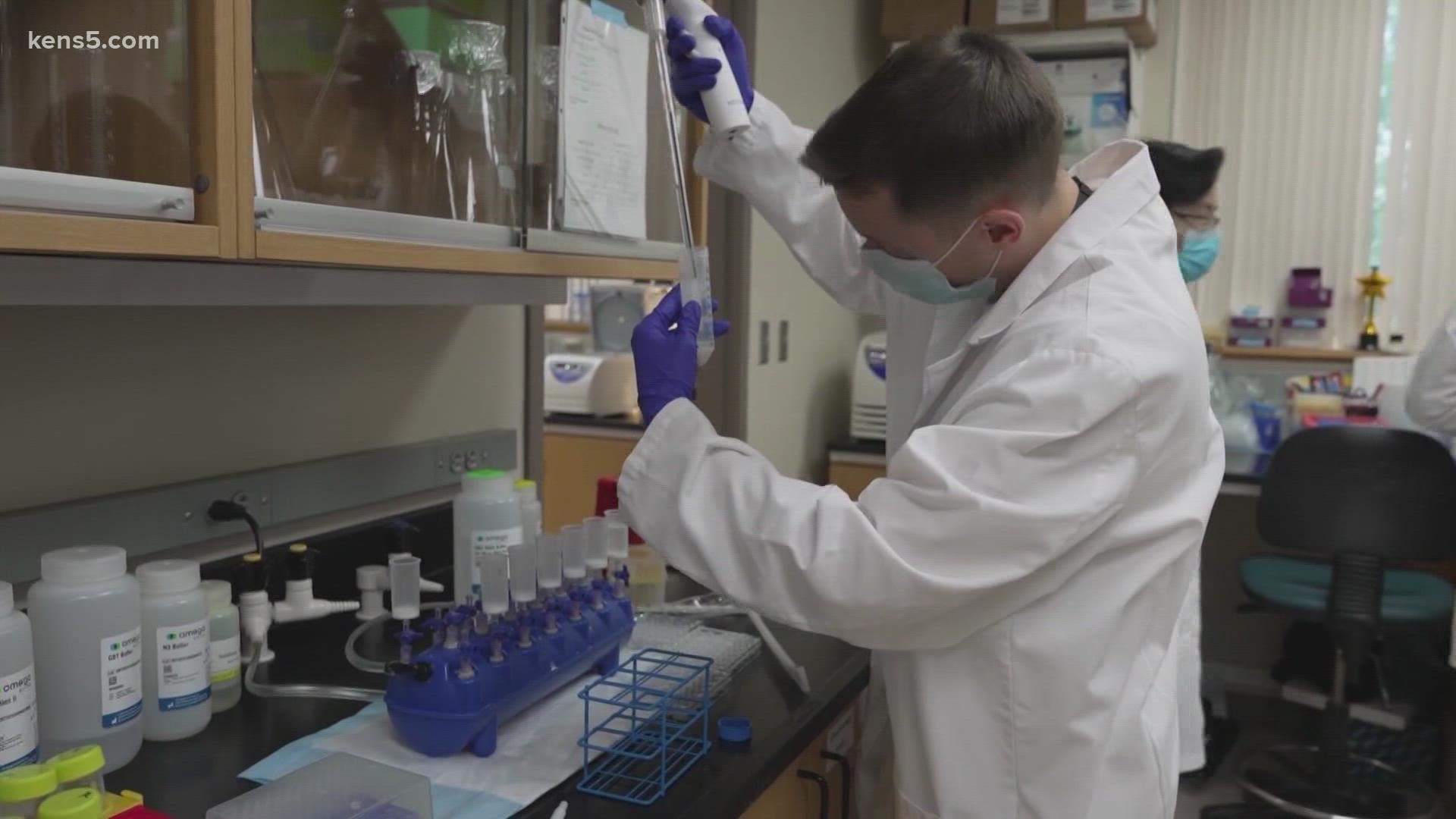SAN ANTONIO — At least three Texans have so far tested positive for the BA.2 subvariant, perhaps erroneously dubbed 'stealth omicron.'
The strain appears to be at least as infectious as the dominant version of COVID-19 that's spread throughout the United States for the last two months. Early data from other countries indicate the mutation does not make infected people more ill than its omicron relative does.
"I don't know who first called it (stealth omicron) and I don't like the name because it sounds scary," said Dr. Wesley Long, Medical Director of Microbiology at Houston Methodist. "It really shouldn't be."
Long helped identify Texas's first three BA.2 cases. Fewer than 100 Americans have so far tested positive for the strain.
The strain's nickname is a misnomer, he says.
A single test, primarily used by lab scientists, often confuses the BA.2 strain for the delta variant. A person infected with BA.2 will still test positive for COVID-19.
"BA.2 lacks a single mutation that (the more dominant version of omicron) has. That mutation is important for a single test to differentiate omicron from delta," Long said. "There's nothing particularly stealthy about BA.2, except for that one assay."
Health officials in the United Kingdom recently listed the subvariant as a strain "under investigation" Monday. The mutation is spreading rapidly through India and Denmark, among other Nordic countries.
Medical experts classify BA.2 as a subvariant because it's similar to the dominant omicron strain. Long says the deviation did not merit another Greek alphabet name.
There are at least four strains of omicron spreading throughout the world. Subvariant BA.1 is responsible for the overwhelming majority of infections.
"It's still too early to say how it's going to behave overall," Long added. "There's just so few cases of it."
Scientists are still trying to determine if the variant is better at evading the vaccine's defenses. It is clear, however, that the vaccine continues to offer strong protection against hospitalization and death.
Long says it's especially important to expand global vaccination efforts so the virus has fewer opportunities to mutate.

